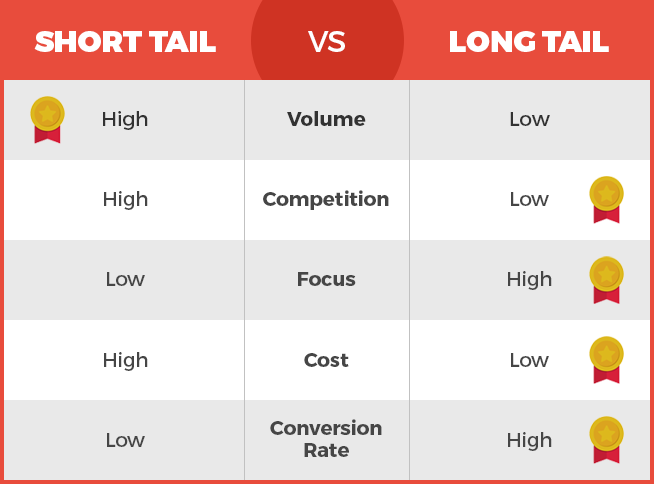The collective real estate industry has been all over the board with record breaking highs and lows in the past decade and the Greater Vancouver area is no exception. One search for “real estate companies Vancouver” delivers more than 800 results showing that the competition to be noticed is fierce. How can you stand out from the rest? An expert and professional online strategy is the key.
Search engine optimization of your website can give you an immense advantage over your competitors.
With a staff boasting years of experience in search engine marketing, Strategis Consulting is here to provide you with a step-by-step guide to increase your rank on Google and access clients who have been previously out of reach.
5 Tips to Getting Your Real Estate Business Website on Top of Google Page One
- It All Starts with the Foundation (Website Architecture)
A strong foundation sets the tone for the strength and sustainability of your website and subsequent search engine marketing success. If something is wrong with the initial web design then your site is doomed to fail. This is where on-page SEO, which is the framework for how your website is created, comes into play.
On-page SEO accounts for up to 30% of search engine rank, so you can see how important it is, and how it should be the first thing you attend to. On-page SEO includes everything from your initial site map to the navigational flow and meta-data structure (where you will place important keywords) of your site. In addition to mobile responsiveness and page speed, the latter two play a very important role in 2018. There are many ways to tell whether or not your house is in order in this regard. While an SEO provider will provide you with more insight, you can at least investigate mobile responsiveness and page speed by copying and pasting your website URL into this Google provided PageSpeed tool. If your website is “in the red” (or even amber) for Mobile and/or Desktop delivery you will need to address the concerns right away. How do you attend to these on-page concerns? By finding an online marketing firm to apply the design-build concept to your website.
ways to tell whether or not your house is in order in this regard. While an SEO provider will provide you with more insight, you can at least investigate mobile responsiveness and page speed by copying and pasting your website URL into this Google provided PageSpeed tool. If your website is “in the red” (or even amber) for Mobile and/or Desktop delivery you will need to address the concerns right away. How do you attend to these on-page concerns? By finding an online marketing firm to apply the design-build concept to your website.
- Keyword Targeting by Geography and Sector
If you’re a real estate agent serving Burnaby, BC, for example, you have a very clear keyword goal. However, if your real estate business services the residential, commercial, and industrial sectors in the Lower Mainland, you will need to do a lot more homework before deciding upon your keyword targets.
There will be varying levels of competition for each sector (residential, commercial, and industrial) and for each region (Abbotsford, Burnaby, Richmond, Surrey, Vancouver, West Vancouver, etc.). You need to identify the low hanging fruit (so to speak), keyword targets that you have a better shot at ranking higher. For example, you may currently rank on Google Page 2 for the keyword target “commercial real estate Surrey” while you’re not even on Google’s radar for “commercial real estate Vancouver”. Sure, the latter expression will theoretically bring you more traffic and bigger clients but gaining ground for that term could take a year or more. The former target, however, can see you hitting Google Page 1 within three months or less, and bring you clients and revenue much sooner. Remember, by targeting what we call “long-tail” keywords, you will be supporting your long-term keyword goals (i.e. “commercial real estate Vancouver”) while at the same time driving in clients today.
So how the heck does one identify these lucrative keyword targets? By setting up a Google AdWords account and by using the Keyword Planner tool to uncover keywords (along with search volume for each) being searched in your area. Once you have built your list of keyword targets, you can simply perform a Google search and click through the search engine results pages (SERPs) to see where your website sits relative to competition. From there, you can identify the aforementioned “low hanging fruit.” Just make sure you’re not signed into your Google account when you do so, as that will skew the results and make it look like you’re ranking better than you really are.
In the end, only an SEO expert can generate a strategic table of keyword targets, but by playing around with the Keyword Planner and navigating the SERPs you will better grasp the keyword targeting concept. We encourage our clients to educate themselves as much as possible before we enter into a relationship with them (you).
- Specific Keyword Targeting
Now that you have some insight into the keyword identification process, we can dive deeper in the long-tail keyword concept. This is where your unique skill set and services come into play.

Chart from SEOPressor.
When you target keywords that address very specific concepts, you have an even better shot at ranking for high-converting expressions which will target clients who are much further along in the decision-making process. For example, let’s say one of the things that makes your real estate business unique, is that you have the Short Sales and Foreclosure Resource (SFR) certification. In addition to targeting your primary keyword expression (i.e. “residential real estate Surrey”) you can also target “SFR real estate Vancouver.” The same applies to any specialized skills that make your business unique.
While the search volume for these specific terms are more limited, the search is coming from clients who are VERY close to securing a real estate agent/broker, and that client can go to YOU if you position yourself on Google accordingly.
Once you have all of your keyword targets lined-up, they must be integrated into the meta-data (as per item #1 above) and into the content of the appropriate pages on your website, in addition to being included in your weekly blog post updates.
- Listing Links for Your Real Estate Business
With your on-page issues addressed and your keyword targets executed within static (pages) and updated (blog posts) content, you now need to switch focus to what is called off-page SEO, predominantly in the form of backlinks.
What are backlinks? These are links that reside on other websites that point back to your website. This is the most challenging part of SEO, because not just any website will do. It needs to be an authoritative website that hosts content that is semantically relevant to your business. Types of websites with content relevant to the real estate industry include (but are not exclusive to) the following:
- Real estate industry online news resources
- Interior design/decor websites
- Architecture news websites
- Local online periodicals reporting on local area building developments
- Real estate specific directories
If you have any connections to writers, bloggers, or media for any of the above, reach out to them to see if they are willing to reference your business on their website. True, this process will occur naturally with a strong content delivering strategy on your website, but it will take longer to achieve. For instance, by updating your blog on a weekly basis with informative, engaging, and useful content online writers will find this content (via search); and, when the information you provide is relevant to an article they themselves are writing, they may very well reference it via linked attribution to your website.
Again, this is a very challenging part of the SEO process, and one that often requires media/blogger outreach support from an online marketing firm but given that your backlink profile accounts for about 20% of search engine rank, it’s certainly worth the effort and investment.
- Google My Business (and other social ‘networks’)
![]()
Your real estate business wants to get on the Google Map for your service area. Once there, you not only have a shot at getting two results on Google Page 1, you will have the opportunity to secure Google Reviews (which impacts rank) and engage/reengage clients who post reviews, while being able to answer questions posed by prospective clients right there on the Google Search Engine Results Page (SERP) itself. This can all be accomplished by setting up your Google My Business (GMB) profile and verifying your website on GMB. You can start the process here, but if you’re concerned about whether or not you’ll miss a step, it may be better to leave set-up and management to a professional.
And what about the other social tools (GMB isn’t really a social network) out there? Well, since social network signals account for about 5% of search engine rank in 2018, and for the foreseeable future, it is absolutely necessary that your real estate business set up and maintain (even with just one post per week) a LinkedIn, Facebook, Twitter, and Instagram profile. Consider this, if all else is equal, and either you or a competitor is the one with a full suite of social networks, the one that has a social media presence will earn a higher spot on Google. If you don’t have the time to bother with social media, simply let a professional manage it for you.
There’s certainly more to the realm of search engine optimization/marketing and how it can be applied to push your real estate business website to the top of Google, but with all of the above you are now ready to make a more educated decision about which direction you should take. The next step, is to contact Strategis Group today to get started and leave the competition in the dust.
 Allemande After earning her degree at Simon Fraser University for New Media Journalism and Editing, Allemande has become an accomplished writer and editor. She is also certified in strategic social media marketing, Google Ads, Google Analytics, and digital sales.
Allemande After earning her degree at Simon Fraser University for New Media Journalism and Editing, Allemande has become an accomplished writer and editor. She is also certified in strategic social media marketing, Google Ads, Google Analytics, and digital sales.
Allemande fluently identifies the channel and content mix that is precisely right for your business and audience. She conducts in-depth analytics for continuous improvement in your audience engagement and generation of sales leads through strategic planning and search engine optimization (SEO), establishes KPIs and related metrics, and prepares meaningful reports that you can quickly action. Connect with Allemande.


Really informative, thanks for sharing this!